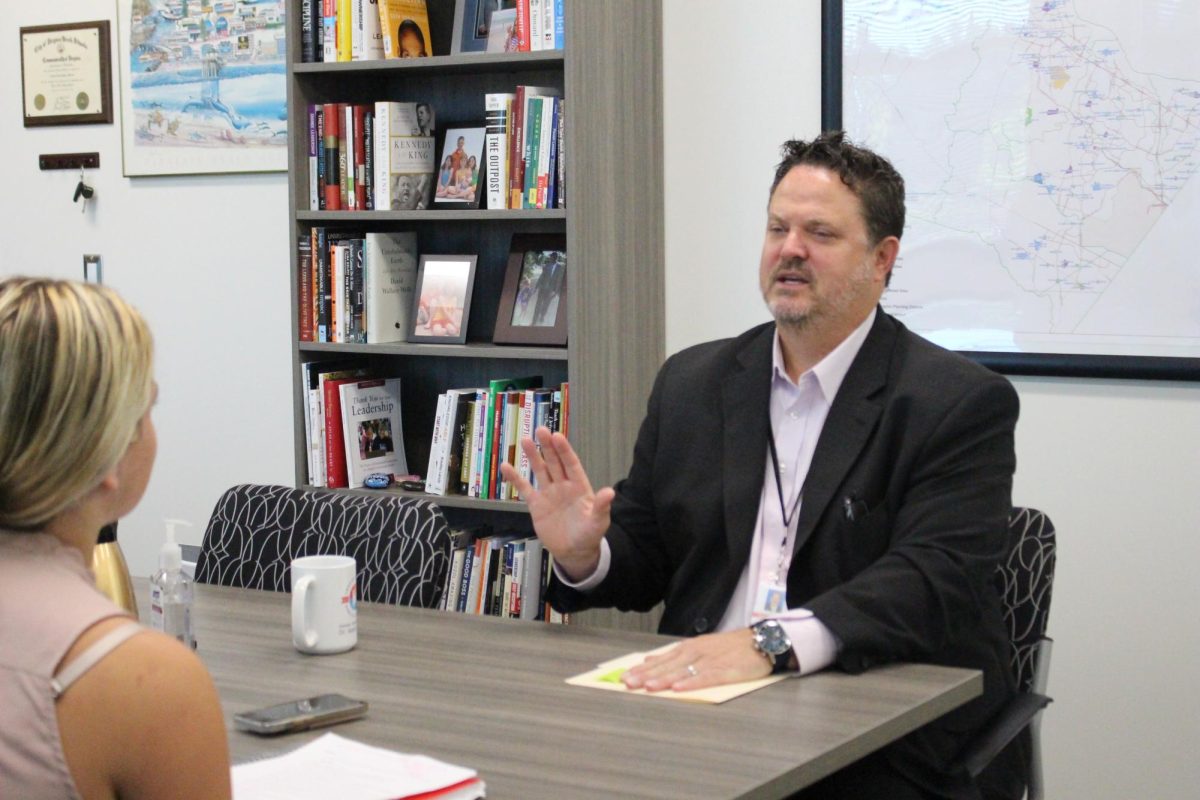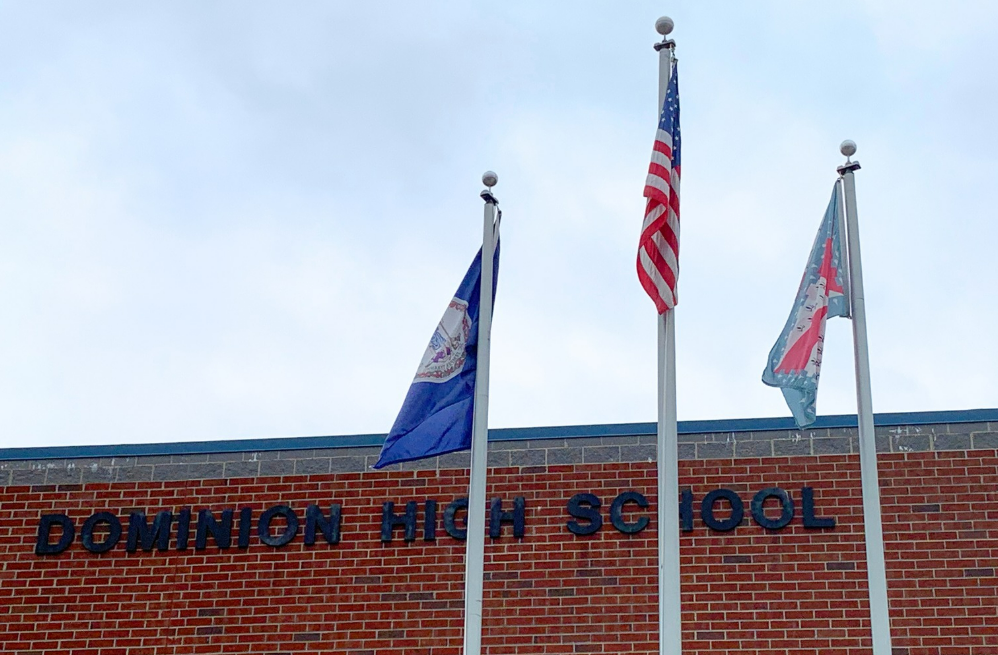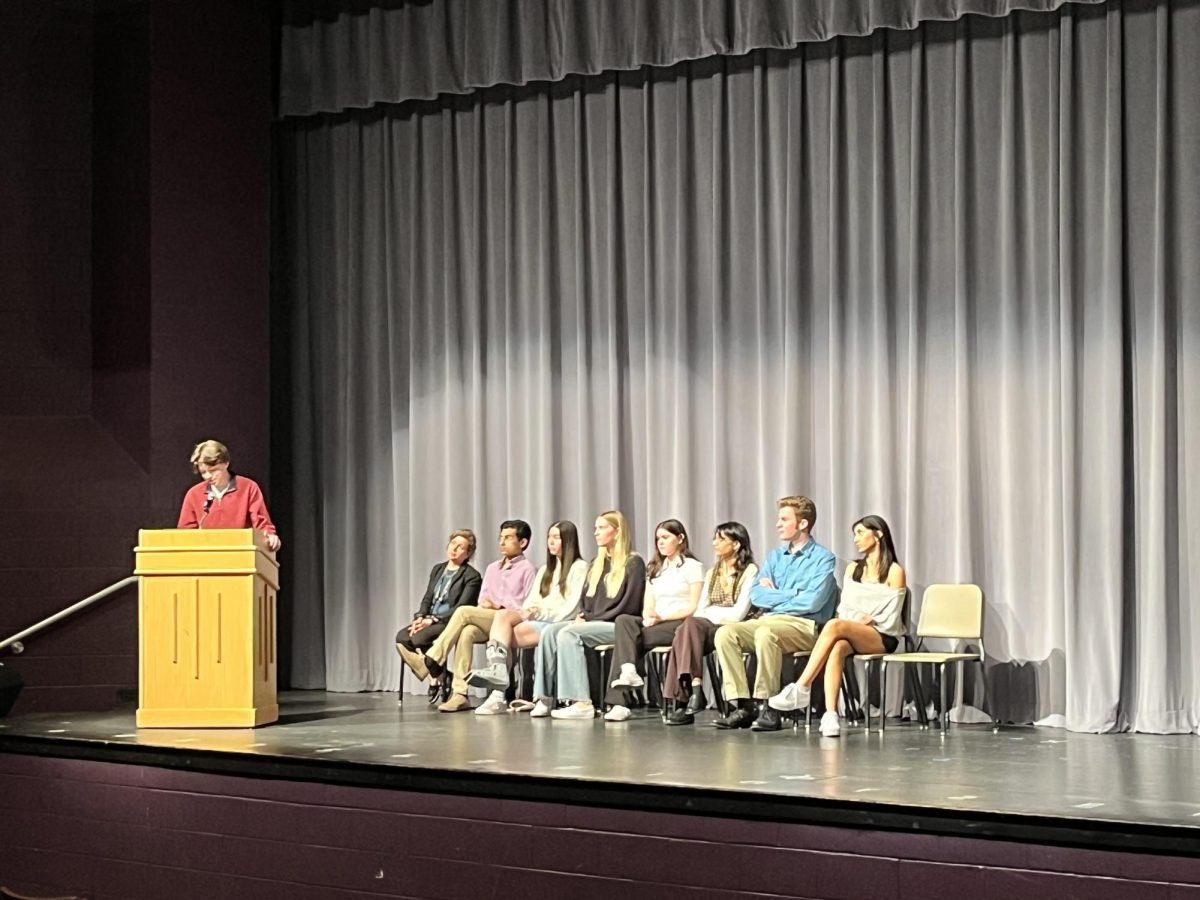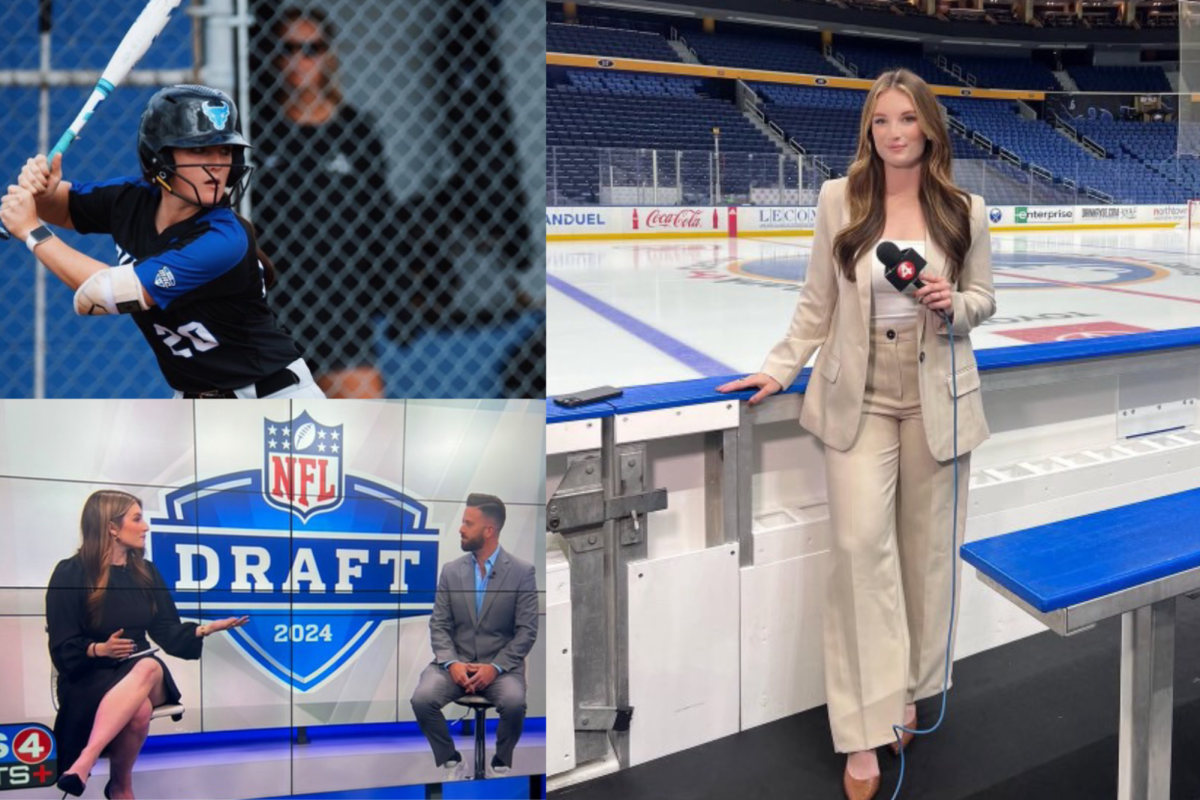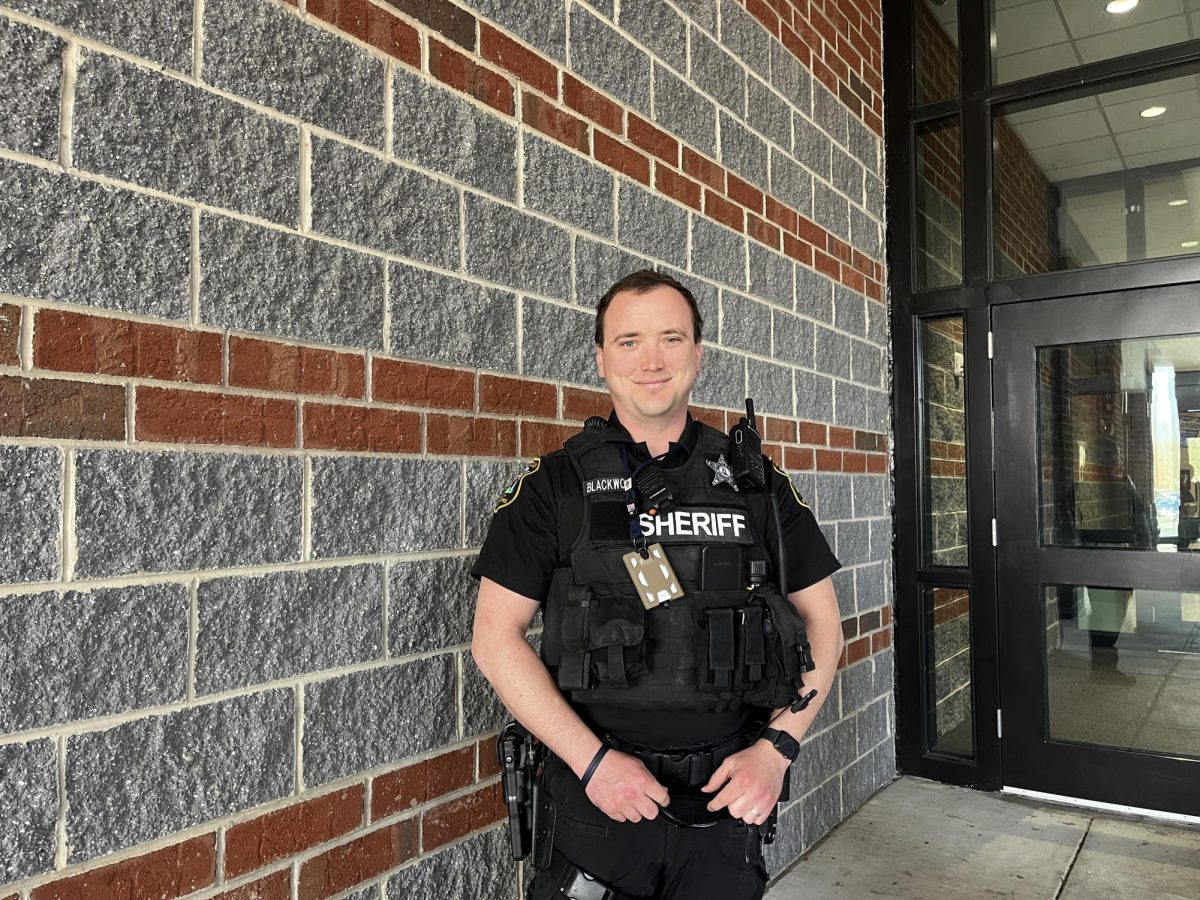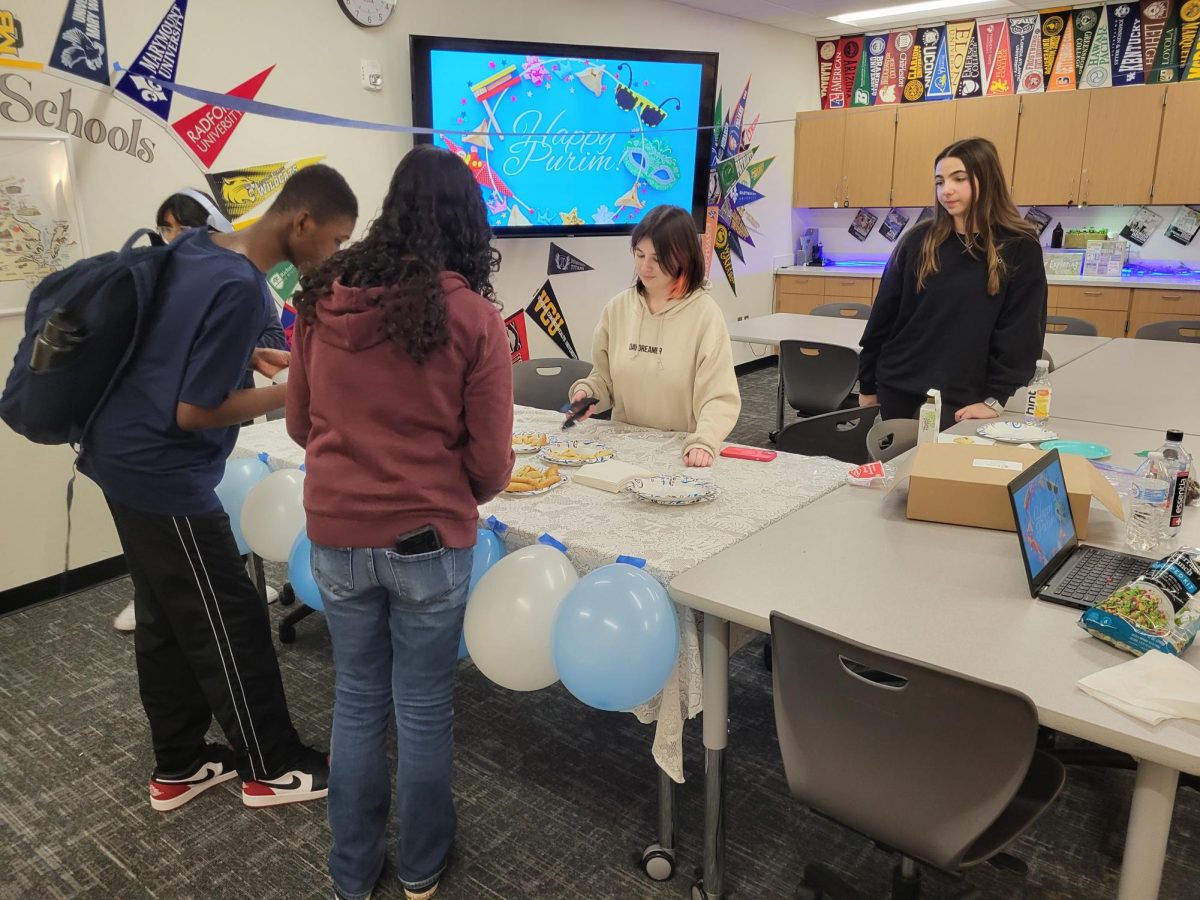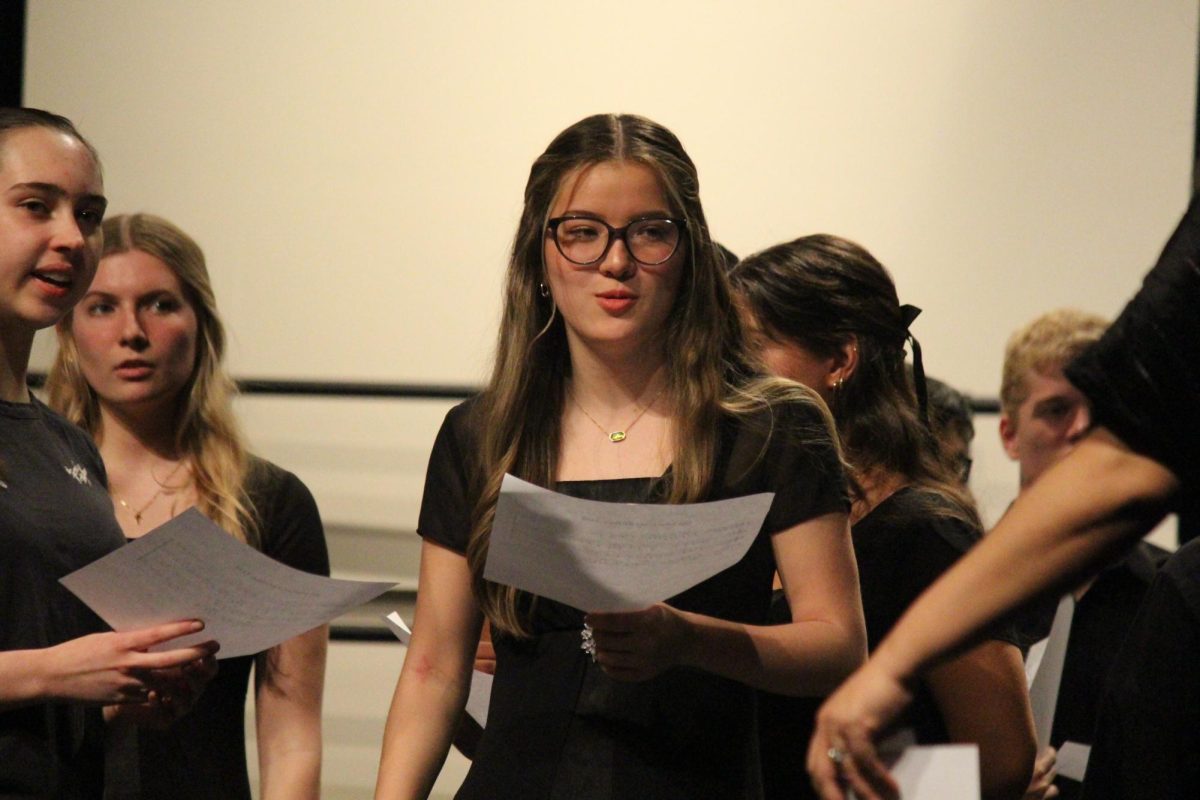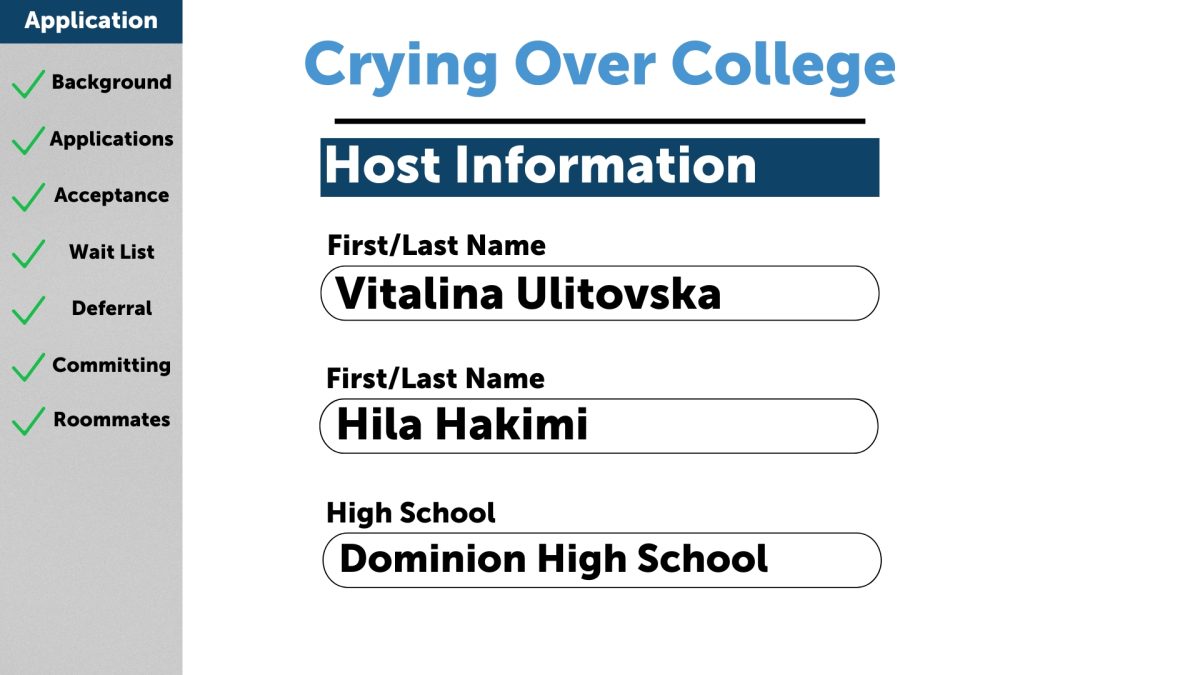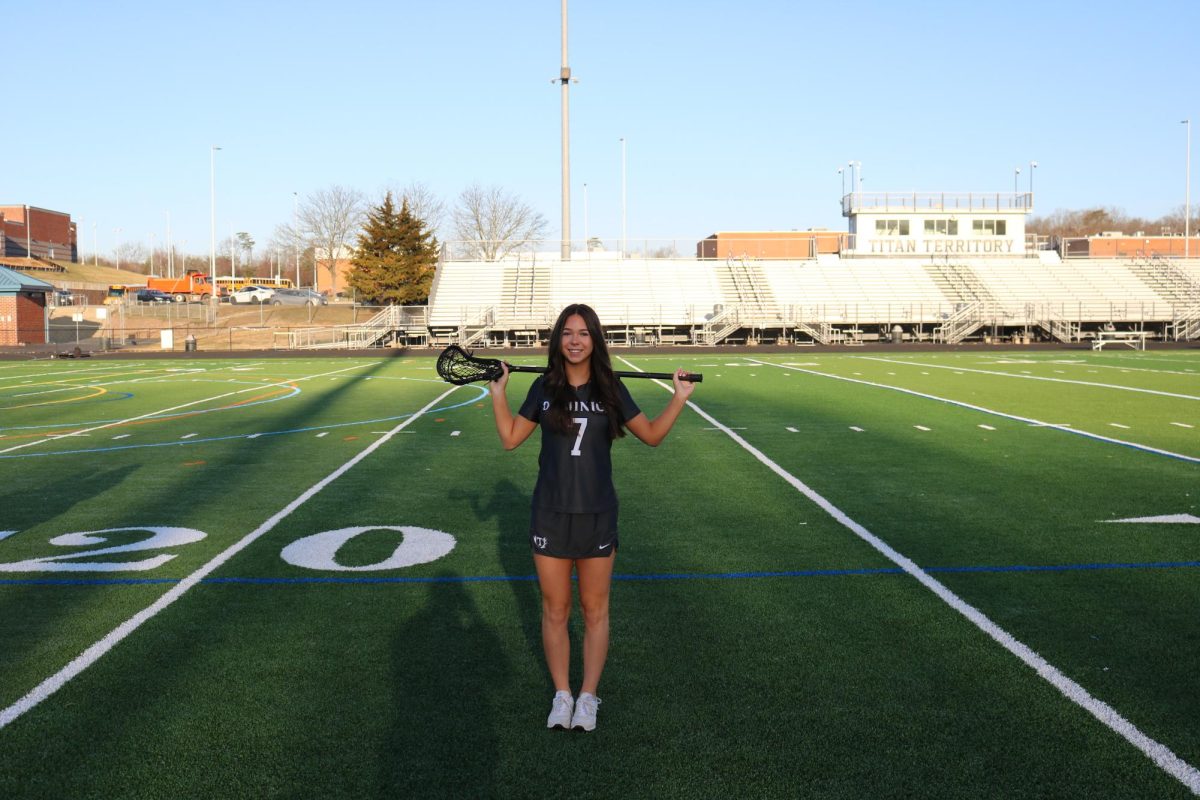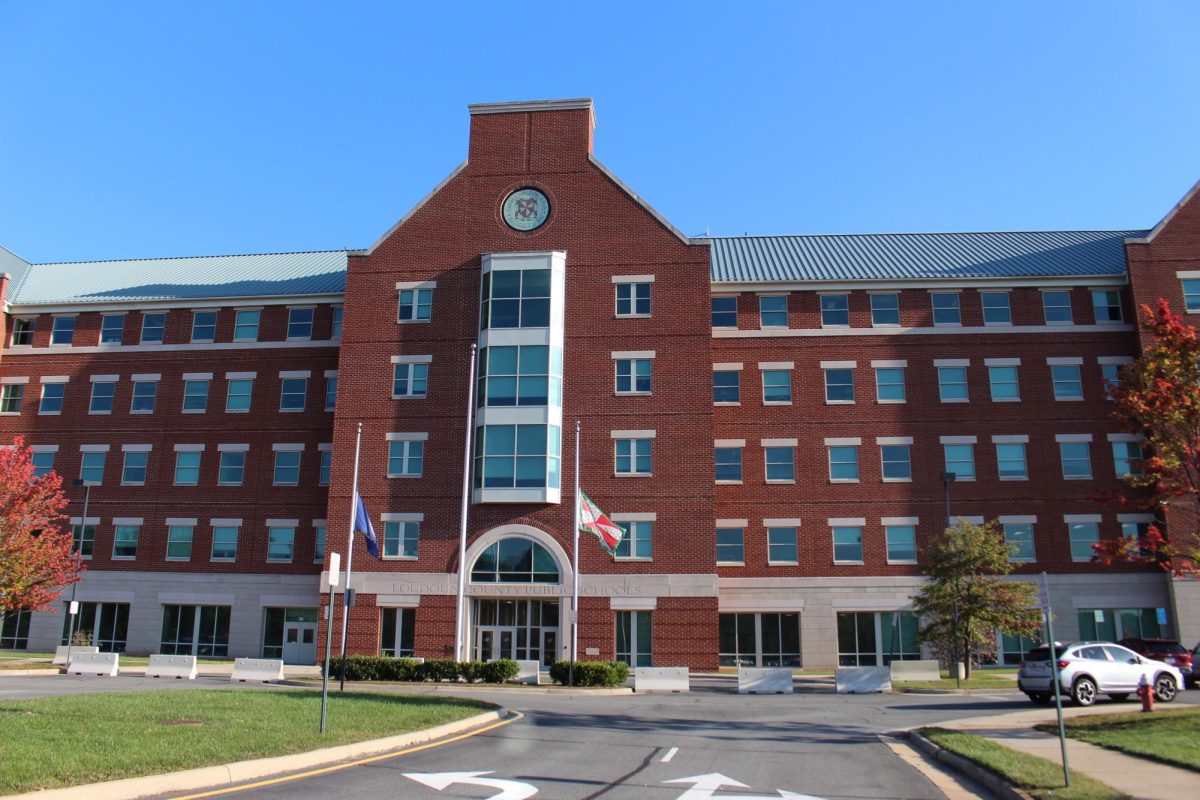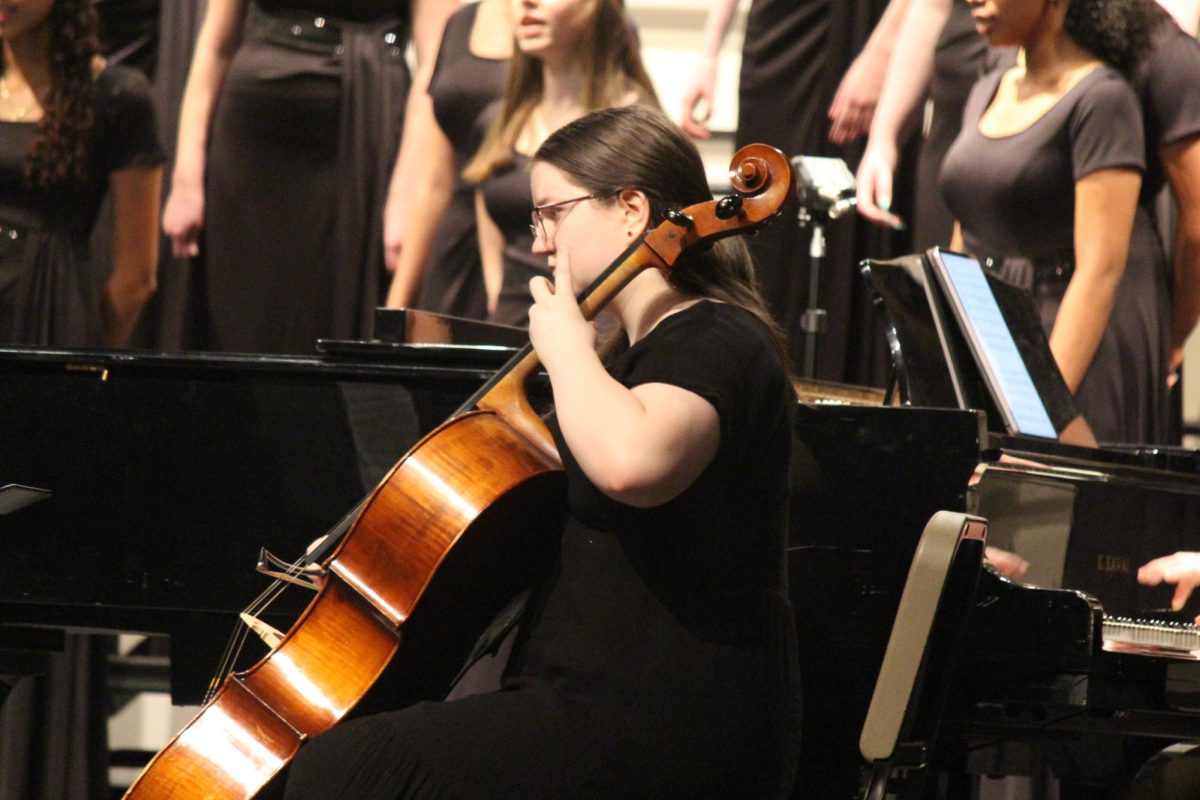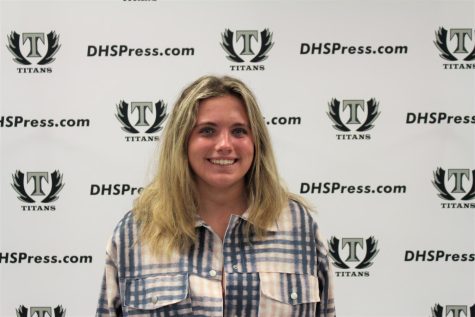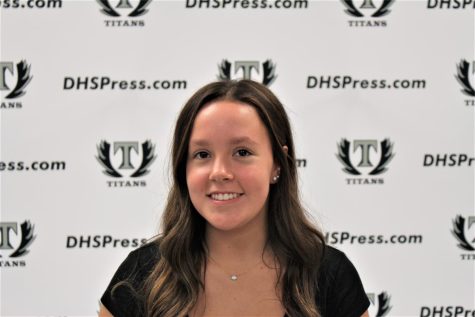Up until 2027, LCPS is planned for by the strategic plan, ONE LCPS. What are some key highlights from the plan?
The highlights for me are the focus on student[s]. It is great that we have a plan that puts students first, and [it] really talks about how we empower our students to be the best they can be. The other thing I think is really important is that … we have to have exemplary teachers and staff. We have to have great teachers, but we [also] have to support and develop great teachers, and we got to go find them, and we got to hang on to them. We are in a place in time right now where education is facing some real challenges with staffing, we have a national teacher shortage, and people are not coming into the profession. What I like about our plan is that it is telling us, “Hey, you have to pay attention to that; you need to figure out how to make this a place where people want to work, they want to come, they want to be a part of our system.” To me, that is a real highlight of the plan.
Over the past few years, Loudoun County has been portrayed negatively in the national media. How does the new administration plan to combat this supposed reputation?
Across the country and everywhere I go in our community, people talk about how much they love our schools. They know the underlying truth. We are on a communications mission to make sure that people know our story and that they really know the truth about who we are. I think another part of getting past that is acknowledging your challenges. If we pretend there [are] no problems, then people will not trust you. There are challenges that we have [and] we are going to work with our community to come up with how we are going to solve this together. If you talk to parents, here is what they want: they want their kids to be safe when they go to school, they want them to learn something really good, and they want to be prepared for the future. If we can accomplish those three things, we can turn the narrative about our school division, acknowledge where we are falling short, and then work on that.
Where does the LCPS administration currently stand regarding the state’s policies on the treatment of transgender students? Specifically, the policies say that students who are minors must be referred to by their names and pronouns in their official records unless a parent approves the use of something else. Do you agree with this? Why or why not?
I will give you two responses here. Response number one is my administrative response, [which] is always going to [be that we will] work with our school board to figure out what our policy is going to be like. My other response is [that] it is critically important that we understand the legal aspects of these model policies. We are working with our attorneys to make sure that we understand what those look like. We will come out and try to address that; LCPS and every school division I have ever worked in works very hard with our parents to make sure that their children have a great experience in their schools. My goal is that every student has an opportunity to feel safe, to feel like they belong, to feel like they are loved in our schools; whatever we have to do to make sure that that happens, we are going to do, and we are going to always work with our parents, so long as we have no concern for harm for our students. If a child comes to me, no matter what their sexual orientation or gender is, and says to me, as an educator, “I am afraid I am going to be harmed at home; there are things happening in my house that scare me.” As an educator, I have a responsibility to help protect that child. I have to evaluate, and I have to work with other people to evaluate. How do we work with the parents in this situation? The concerns that I hear from our LGBTQ+ community are if we have to engage our parents and get permission for all of the things that are in these policies, may cause harm, [but] I want to engage with parents. I want to keep having those conversations with our students and our parents to make sure that we are doing our best to help students have great relationships with their families at home and families have great relationships with our schools.
How would you respond to the recent ABC Seven News report, which appears to be one parent’s claim of “there’s a biological boy that has been in the girls athletic locker room.”
I would respond the way we responded; our aim and goal is to always make sure that all of our students feel comfortable. If there are students who are uncomfortable with transgender students in their bathrooms or in their locker rooms, we want to make sure we work with their families and give those students the right to opt-out and seek privacy. We would do the same for a transgender child if that is what they wanted. We are going to work with families across the board, and we are going to give their students the opportunity to feel safe and comfortable.
How does it make you feel when organizations and parents grab onto that story and assume it is rabid in the county?
How I react to that is what we have to do as a community, as humans, as people who have to live together in society and figure out how we can all work together to do the best we can for our kids. We have to get to know each other better. We have to stop making assumptions based on a single story. My hope is that we can recognize that we are talking about human beings and children. These are people who have real hopes, real dreams, real aspirations, real fears, who are in our schools, who have parents who want the very best for them, just like other parents who want the very best for their children. If we can approach from that human lens with some empathy and some effort to understand, then we can get past the single-story narrative and start to realize that we can come up with solutions together to make sure that we all feel safe and comfortable in our schools.
As we approach the three-year anniversary of schools shutting down because of COVID-19, what effect have you seen the pandemic on students’ education?
There is no question that the pandemic has had a detrimental effect on our student’s learning. First of all, I think there were a lot of things learned during the pandemic that will serve [this] generation well, things that [they] had to learn about resilience, and how to collaborate in new environments, and adaptation. I do talk about “interrupted learning.” There is no doubt that there was learning missed. The group that I worry about [the] most [is] our youngest learners because those formative years, K-3, where you are really supposed to get that foundational literacy and foundational math fluency, students did not get it at the same level. We have a generational challenge of making sure that over the course of time, we are catching young people back up to our level of expectation. There is a whole other set of issues that have come out of the pandemic, it is not just learning loss. Mental health is a huge concern right now. When you are isolated and you are fearful and anxious, you begin to lose hope. Hopelessness drives mental health issues. As a community, we have to come together. We have a mental health task force that is working to try to figure out how we provide the support that our students and families need to address that issue.
How do you feel about the start and end times with high schools right now?
I think they are really good. The research says that we are doing it right in Loudoun County. You are born either like a night person or a morning person, but [then] almost everybody, when you enter your teenage years, shift to the night person rhythm. It is very unusual for teenagers to not have that rhythm. Your brain does not fire up till about 10 o’clock in the morning. If I send you to school at 7:30 in the morning, I am wasting the first two hours of your day instructionally. We have parents in our elementary schools who do not love having their children standing at bus stops in the dark. I think that is the biggest concern with the way we do start times in Loudoun County. If you make decisions that are student-centered, this is the right decision [for Loudoun County students] because elementary-aged kids’ brains are fired up as soon as they open their eyes. We are actually putting our start times in alignment with what the research says.
Currently, there are many schools with issues of increased vaping and drug use in the school. Are you examining the consequences of vaping and drug use on school grounds? Why or why not?
We definitely are attuned to it, concerned about it, and thinking about it. My perspective on it is we are not going to fix it with punishment. If you punish somebody who is vaping, you are not going to stop them from vaping; they are just going to get punished. What we need to do is work on the front end, be proactive, and try to do more on the education side of vaping and a little bit more on the deterrent side, like having vape detectors and things like that, but more so on the education side. Vaping and drugs are a part of our community; therefore, they come into our schools. If we really want to stop all of it, we can not look [just] to the schools to solve the problem. We got to solve the problem in our community. We have got to figure out how to be preventative around vaping in our community; we should have laws that are much more restrictive about who gets access to these things. When it comes to drugs, we should have better programs to reduce the use of drugs in our community. If we can do those things together, we can see less of it. It is also important, as a leader in the community, to engage our community in that conversation.
Are you looking at any changes within the high school structure, like GED programs for students who are not ready for a traditional path like college?
We are hearing about workforce development needs. I am hearing about what we are doing for kids who have to support their families. How do we build programs, either GED programs or night schools, that might work for those students? I am listening and hearing, and then we will develop plans together as a community to address those concerns.
How do you feel that the election of a new school board in November will impact your agenda?
The thing that Superintendents always have to recognize and realize is; [that] it is not my school division. The community will elect the people that they want to represent them to help direct that agenda. I look forward to working with the new school board. What is important is that we all come together and learn to work together in a very civil and open-minded way so that we can agree on what is the best direction to move forward.



